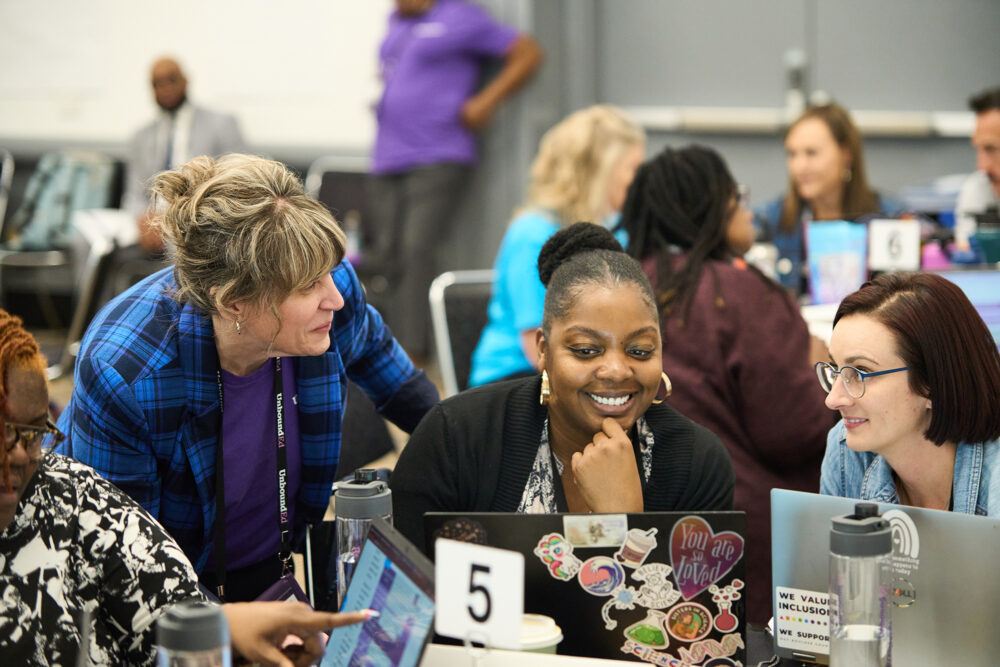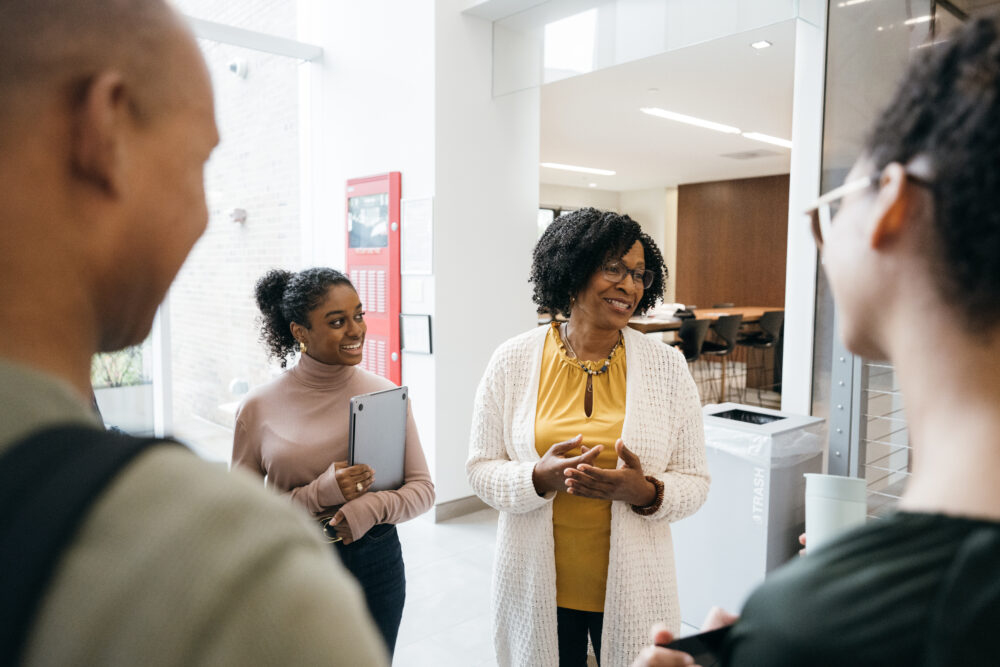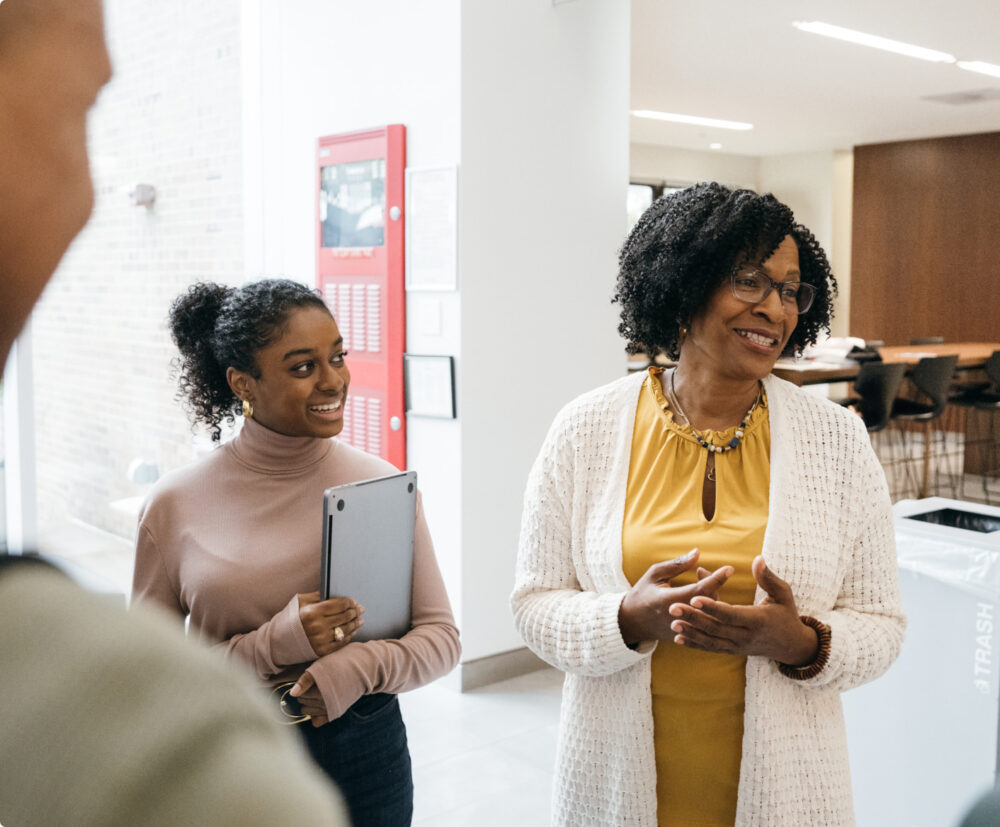
Disrupted schooling due to the global pandemic and increased awareness of racial injustice has awakened many to the importance of culturally relevant teaching (CRT). The importance of ensuring that grade-level instruction is affirming, engaging, and meaningful has never been more evident; we know our instruction must connect to students’ cultures and lived experiences, while also surfacing and inspiring action to combat inequity. In bringing CRT to your classroom, have you thought about the role mathematics identity plays for both you and your students?
Indeed, America has a math identity crisis. Have you ever heard someone say, “I’m not a ‘reading’ person?” Probably not. And yet, we’re perfectly comfortable saying we aren’t “math people.” The idea of being a “math person” is based on two pervasive worldviews; first, the so-called “fixed” mindset, that what one knows about math cannot change meaningfully over time through study and practice. Second, it is based on a narrow understanding of what it means to know and do math; “being a math person” means memorizing formulas, computing quickly in your head, and being fluent with algebraic procedures only.
How might this identity crisis play out in our schools? For those of us who are “math people,” we can unintentionally perpetuate a narrow view of success in mathematics; after all, being able to perform math in a certain way made us “math people.” This may explain EdTrust’s finding that 87% of school mathematics assignments are focused on procedures. And those who are “not math people” can unknowingly convey to students that it’s entirely possible they aren’t math people either. And we know this identity crisis, like so much else in our K-12 system, will disproportionately impact our Black and Latinx students.
So what are we to do?
- Get reflective. How do you feel about math? How did your relationship with math change over time? Consider sketching a “math autobiography” to understand your own math identity and how it might be playing out in your classroom.
- Broaden your focus. What have you internalized as “doing math”? Consider researching ethnomathematics or non-Western mathematical traditions. What is your mathematics instruction in service of? Critical scholars like Paolo Freire can help you to consider teaching mathematics with a broader lens.
- Consider identity in discretionary moments. Deborah Ball introduced us to the powerful concept of discretionary spaces. When confronted with the day-to-day classroom decisions that can either oppress or uplift students, take a beat to ask: “how will this decision impact my students’ mathematical identities?”
- Seek resources. This presentation from Robert Q. Berry is worth checking out, as well as works by authors Danny Bernard Martin and Rochelle Gutierrez.
It is possible to reshape our own math identity in service of helping students craft theirs. Math can no longer be thought of as a secret society of brainiacs. It is accessible, rooted in all cultures, and part of our everyday lives.
Next steps with GLEAM®
Choose the path that fits your team


UnboundEd Summits
Accelerate your instructional vision and build educators’ skills and expertise with a virtual or on-site Local Summit.
Learn More ➜

In-Service Workshops
UnboundEd’s dynamic, hands-on workshops build educator capacity by focusing on timeless, cross-disciplinary instructional moves that drive effective instruction, rigor, and student empowerment.
Learn More ➜
Online Math Academy
UnboundEd’s Online Math Academy courses enrich educators’ content knowledge and instructional practices to unlock all students’ math potential.
Learn More ➜
Curriculum Adoption
Ensuring quality materials are adopted and used effectively is crucial to improving outcomes and requires a strong instructional materials selection process. We’re here to share guidance and support on leading a rigorous and collaborative curriculum adoption process to select the right materials for your context and goals.
Learn More ➜
Curriculum Implementation
Just getting started, or need to get back on track? We work with you on a shared vision and an actionable plan for curriculum success.
Learn More ➜
Literacy ReclaimEd
Improve literacy instruction and better meet the unique needs of every student.
Learn More ➜
GLEAM® Inventory
Build your team’s understanding of grade-level, engaging, affirming, and meaningful –GLEAM®– instruction and transform how you serve all students in your district.
Learn More ➜
Speaking Engagements
Our experts offer inspiring, thought-provoking messages and conversations that will get your team thinking creatively about shifting mindsets and changing practice.
Learn More ➜
California Math Curriculum Adoption and Launch Cohort
Prepare to adopt and launch high-quality mathematics instructional materials with no-cost, grant-funded support from UnboundEd.
Learn More ➜